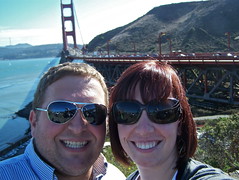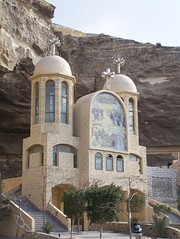 Shonda Rhimes has one of the most phenomenal TED talks I’ve heard in a long time. In it, she talks about “the hum.” This is that churning force that drives our constant attention to our work. It’s the energy that wakes me up at 2:00am because “THAT’S WHAT I SHOULD’VE PREACHED ON EASTER!” It’s the constant flow of always having to do, make, produce, write, plan, schedule, be better, do better, visit more, check, double check, triple check, be here, now be over there, now be both places simultaneously — anyone know what I’m talking about?
Shonda Rhimes has one of the most phenomenal TED talks I’ve heard in a long time. In it, she talks about “the hum.” This is that churning force that drives our constant attention to our work. It’s the energy that wakes me up at 2:00am because “THAT’S WHAT I SHOULD’VE PREACHED ON EASTER!” It’s the constant flow of always having to do, make, produce, write, plan, schedule, be better, do better, visit more, check, double check, triple check, be here, now be over there, now be both places simultaneously — anyone know what I’m talking about?
I got stressed out just writing that last sentence.
What if we stopped doing this? What if we refused to participate in the madness of the hustle — even just for a day? What if we put the iPhone down, closed the laptop, shut off the television, and talked with your spouse, your kids, a friend, your mom or dad, your brother(s) or sister(s), the mail carrier, whoever? What if for just a small period of time each week, we pretended like the work was done and we sat back to relax?
Rob Bell has a wonderful podcast about a command from the book of Leviticus, early on in the Hebrew scriptures where there was a command for farmers to work their land for six years and, on the seventh year, to “let the land lie fallow” — to let the land rest for a year. This year of not farming allows the soil to rebuild essential nutrients so that it can be fruitful and productive the next six years. The idea is that even the earth has a rhythm of work, then rest, work, then rest.
In the creation story in the book of Genesis it says that when God created human beings, we were formed out of the soil and dirt and clay. Then God breathed life into us.
We are a combination of soil and breath — soil and Spirit. So if the command from Leviticus is to let the land lie fallow every so often, then the same would hold true for us, as creatures made from soil and breath. It’s the reason that one of the 10 Commandments is about honoring the Sabbath, because by honoring the Sabbath, we’re honoring the gift of our life. We’re honoring the gift of our existence as creatures of soil and Spirit.
This can be a hard thing to initiate, to start from scratch. How do we do this? How do we let ourselves rest in a way that allows us to re-build essential nutrients in our body and soul?
It starts with giving yourself permission to do whatever you have to do to take yourself out of the hum, to let the soil and Spirit that make you who you are lie fallow for a time.
For those of you who would still like a little structure to this rest time, feel free to print out the follow permission slip, or copy/paste to a Word document and use whenever you can feel the hum start to overwhelm you.
___________________________________________________________________________________________________________
Permission Slip
Name: _________________
Date: __________________
In defiant affirmation that my worth is not found in what I produce or accomplish, in
remembering that I am a human being, not a human doing, do hereby give myself
permission to __________________________________________.
Signed: ________________________
___________________________________________________________________________________________________________
You can do this. It’s okay. Everything will be here when you get back.
Step out of the hum. Step out of the flow.
And rejoice that God created you to be a human being, not a human doing.
Cheers,
Eric

















